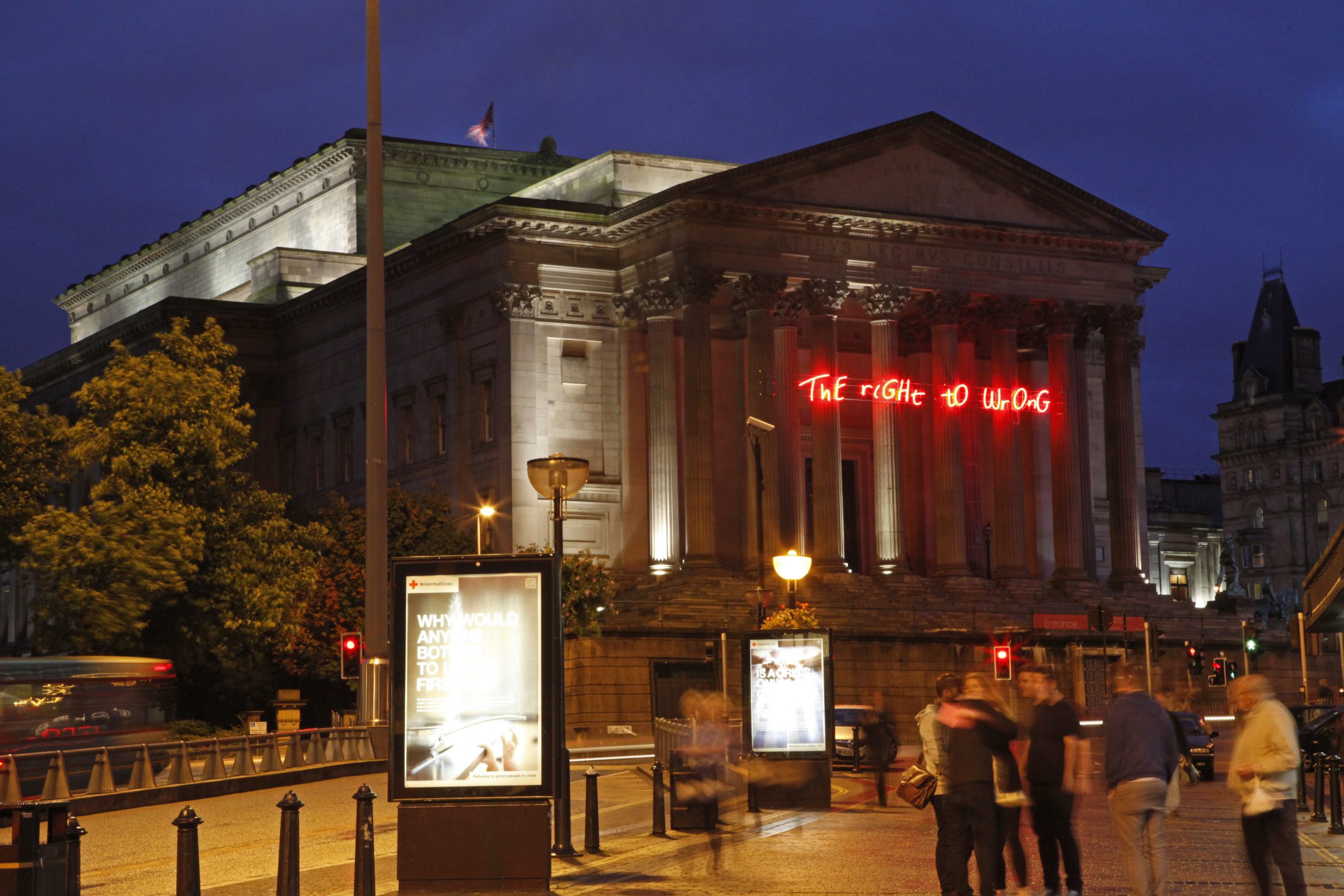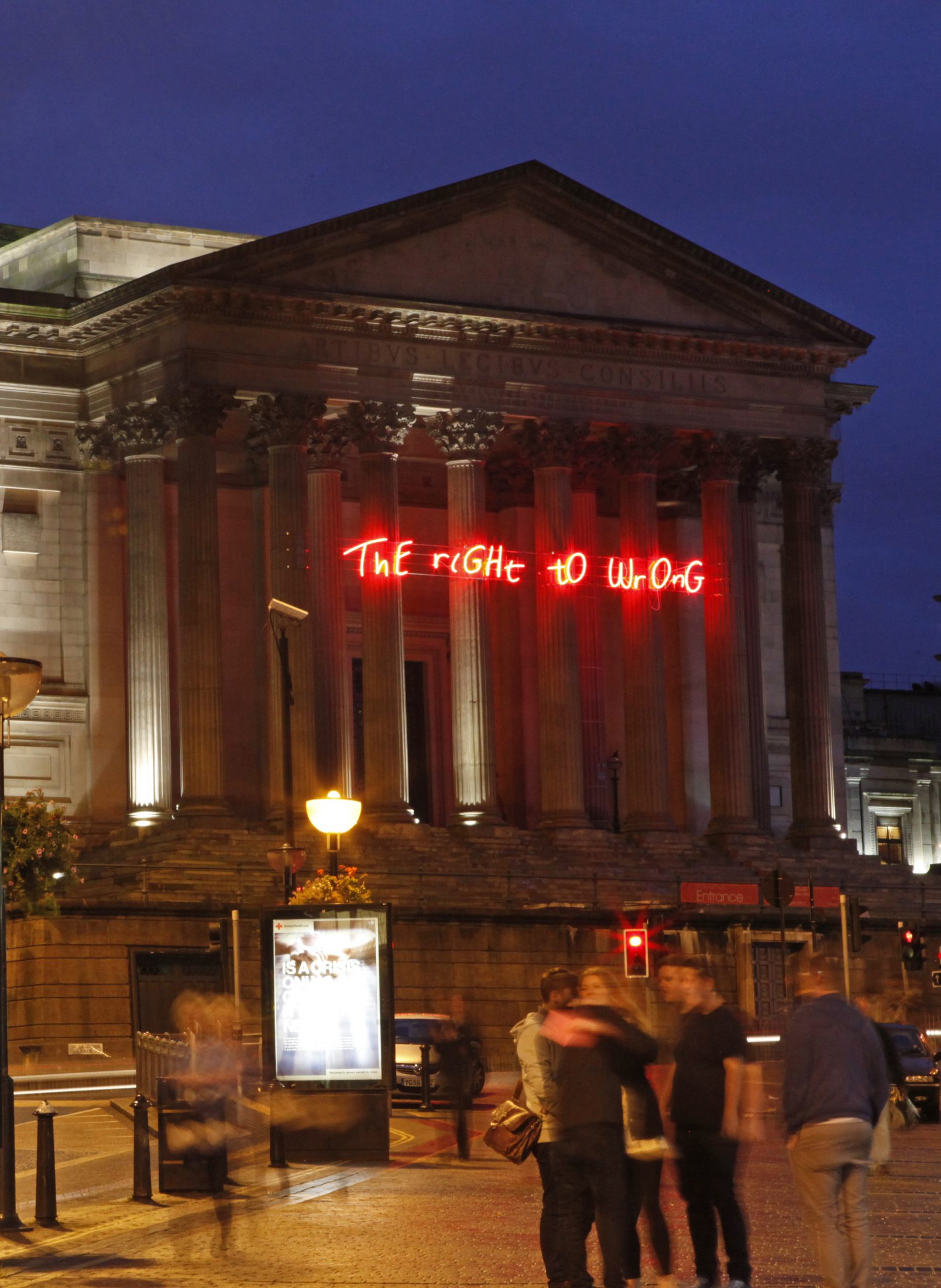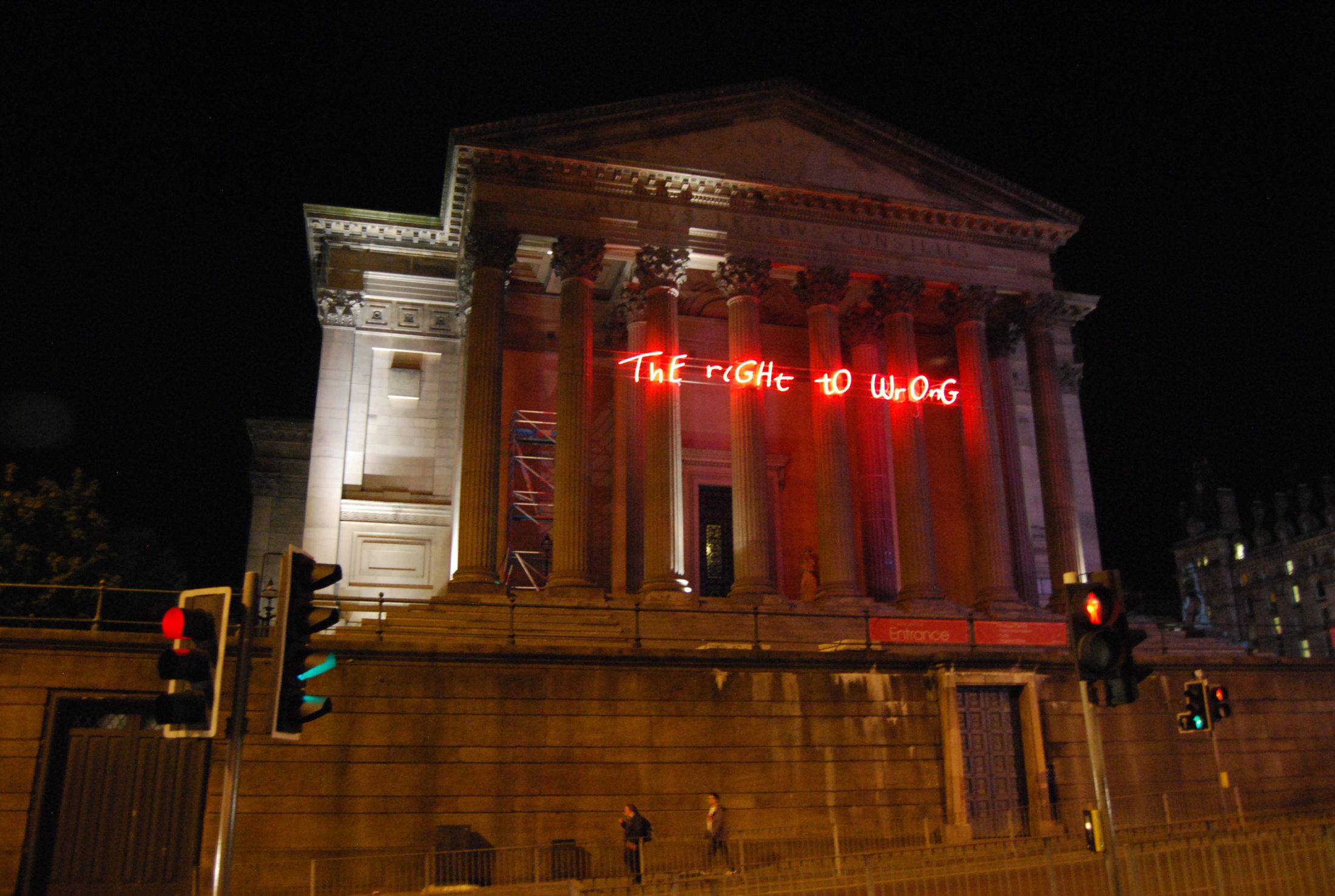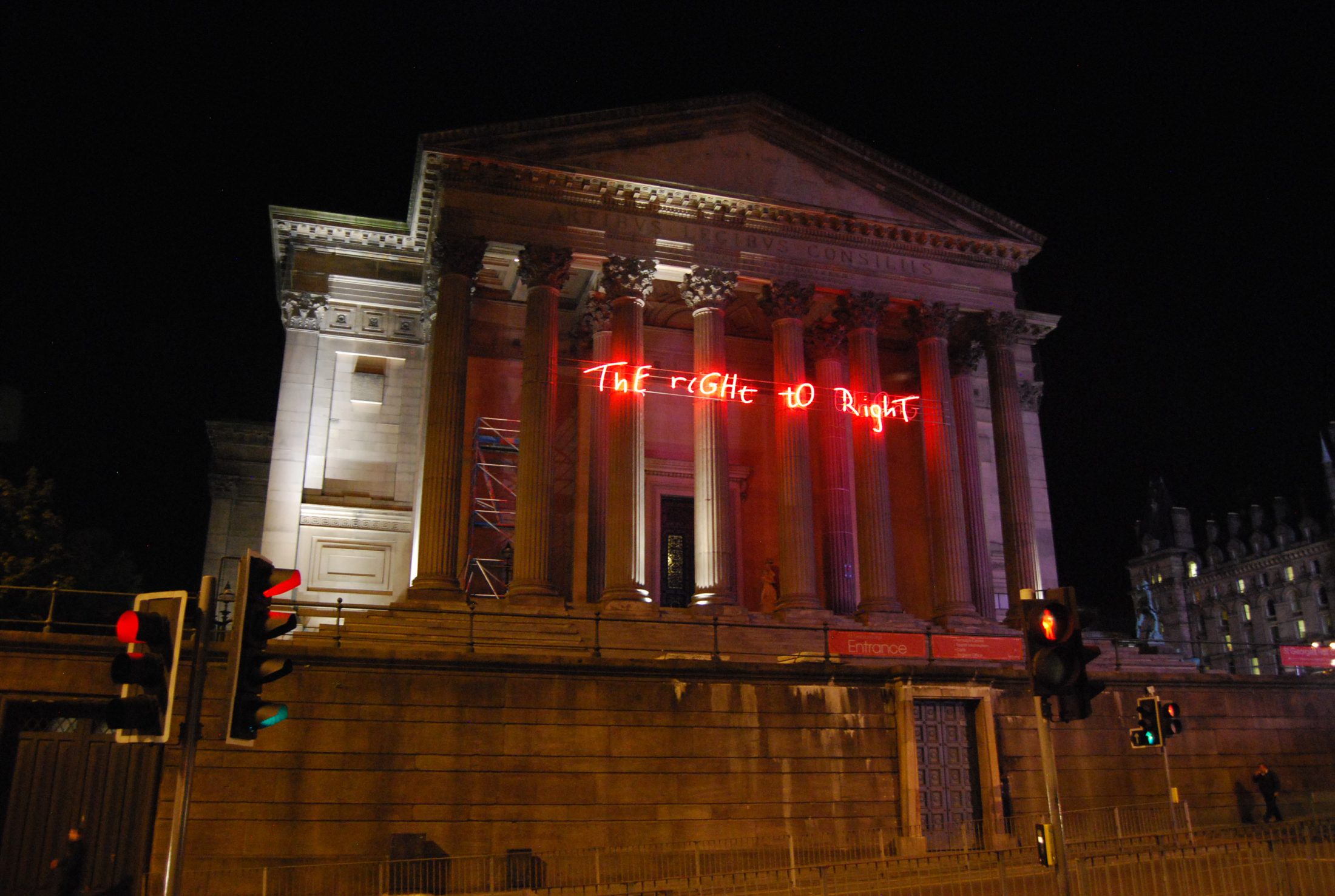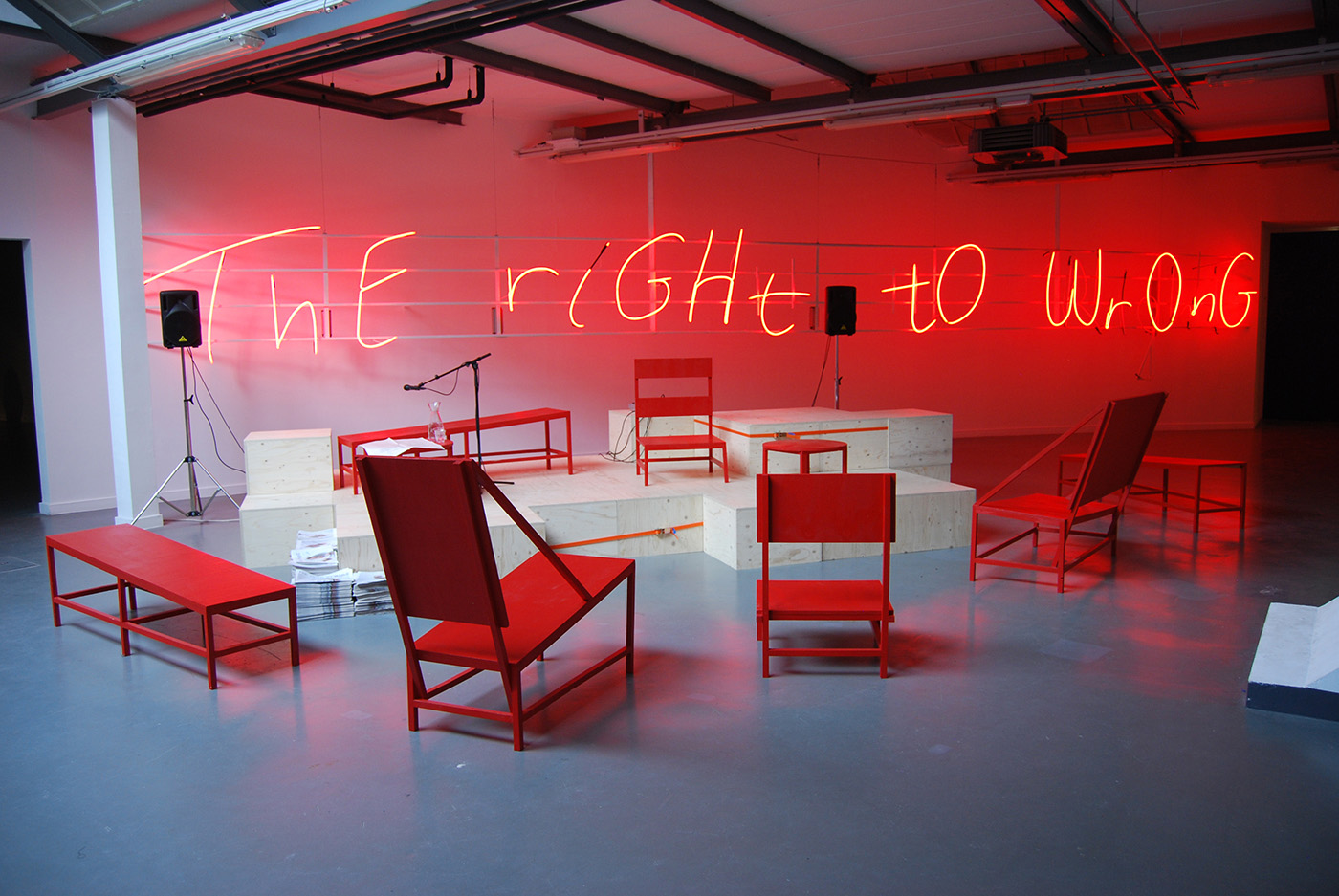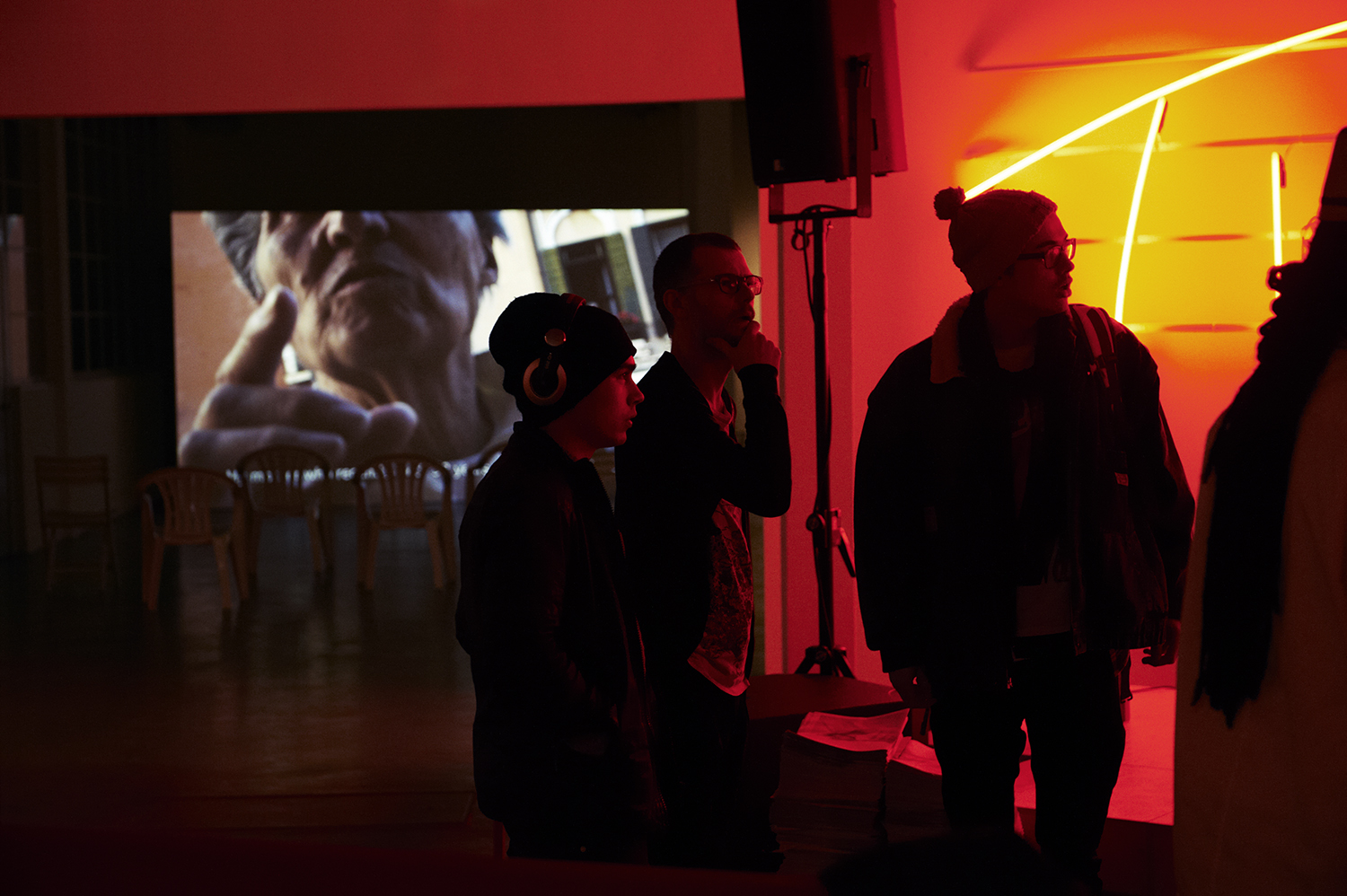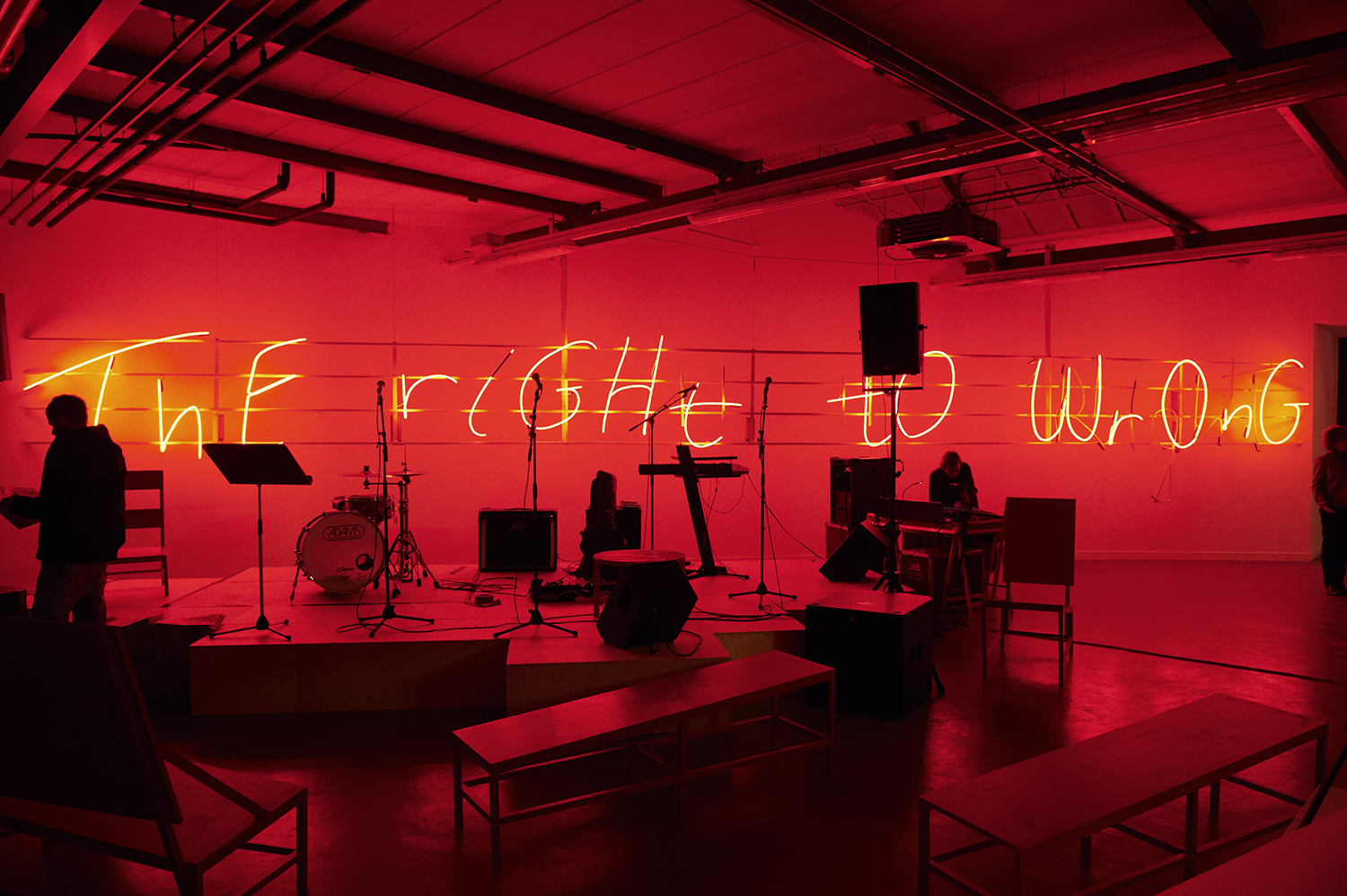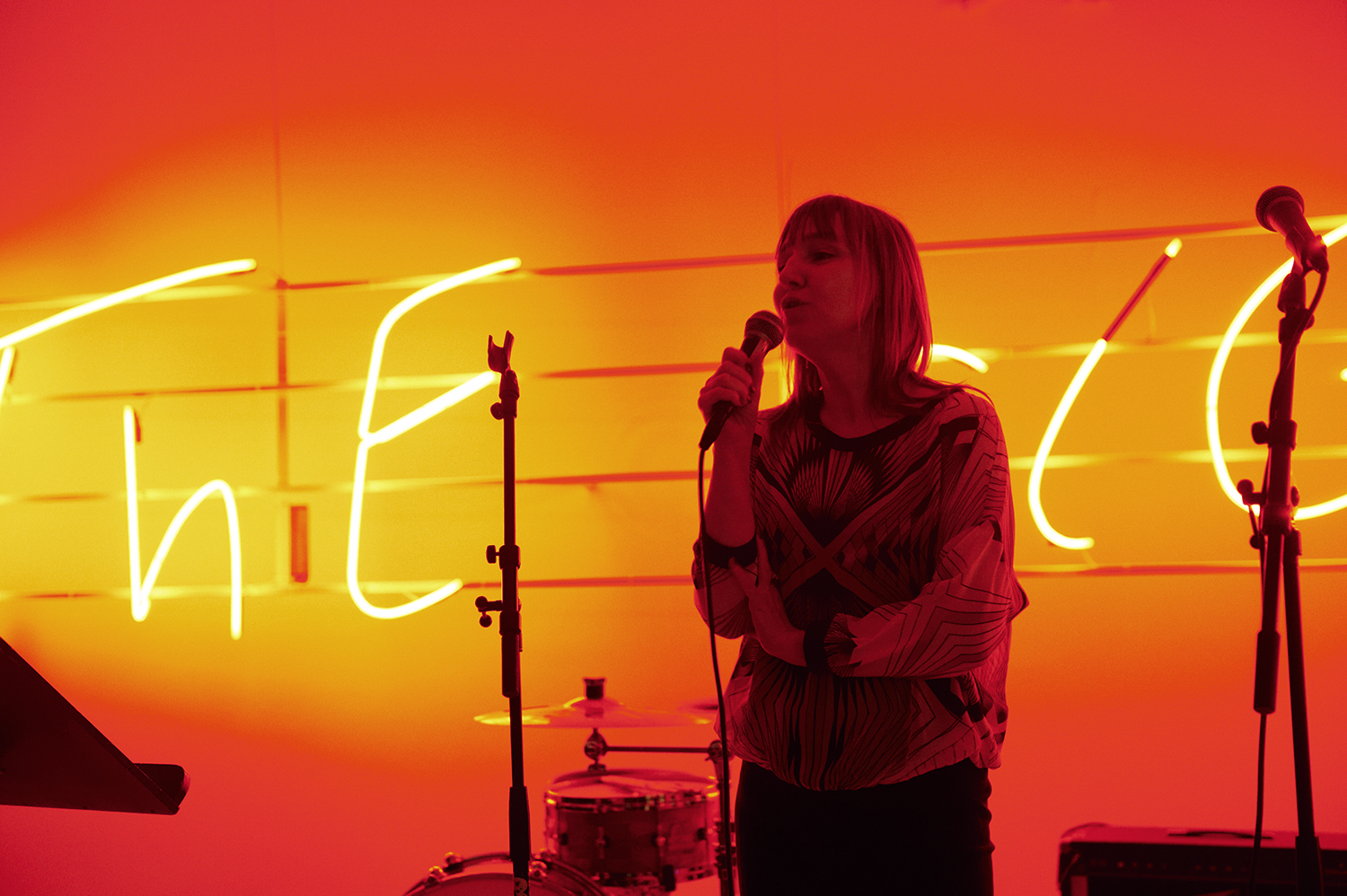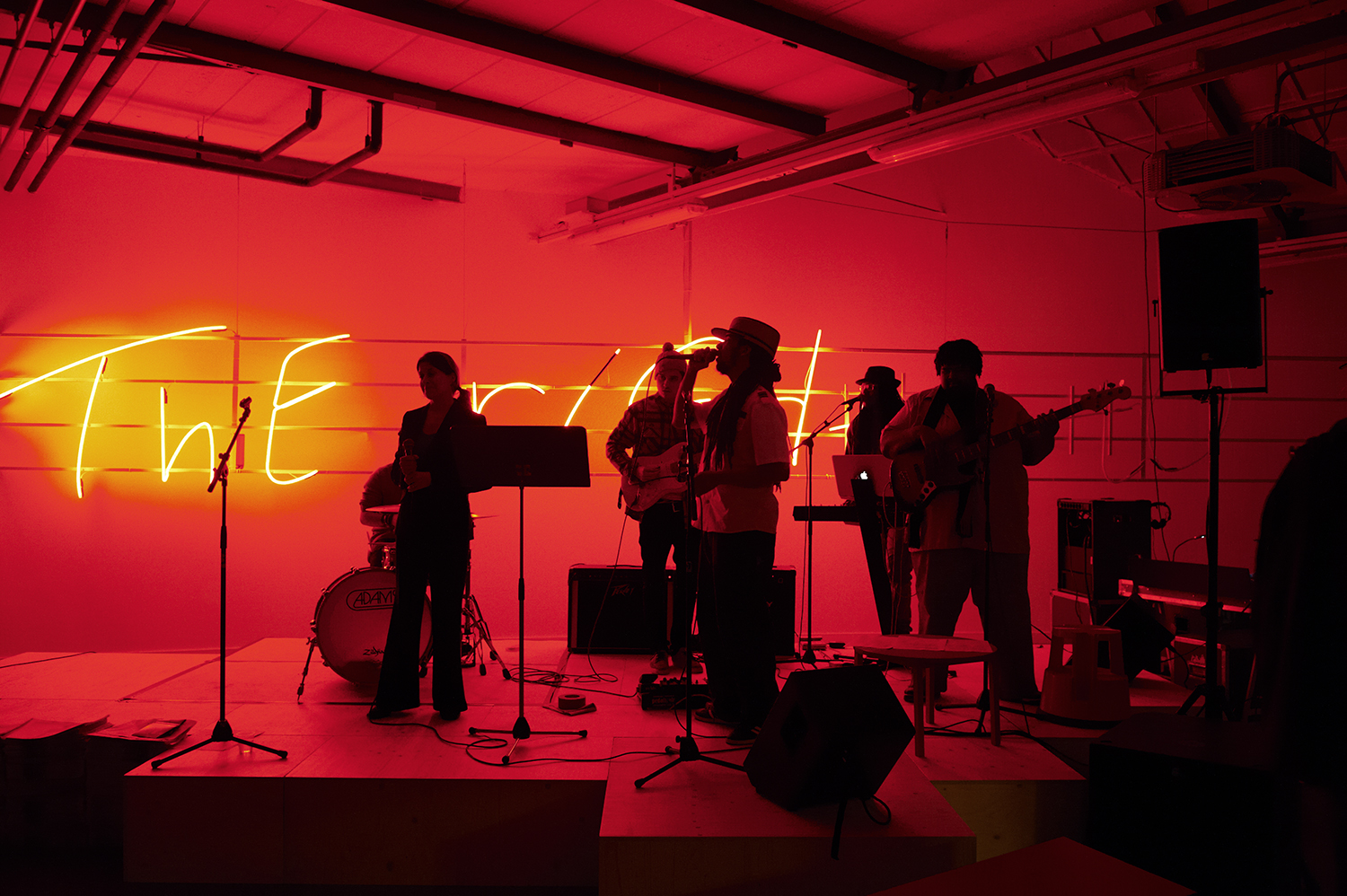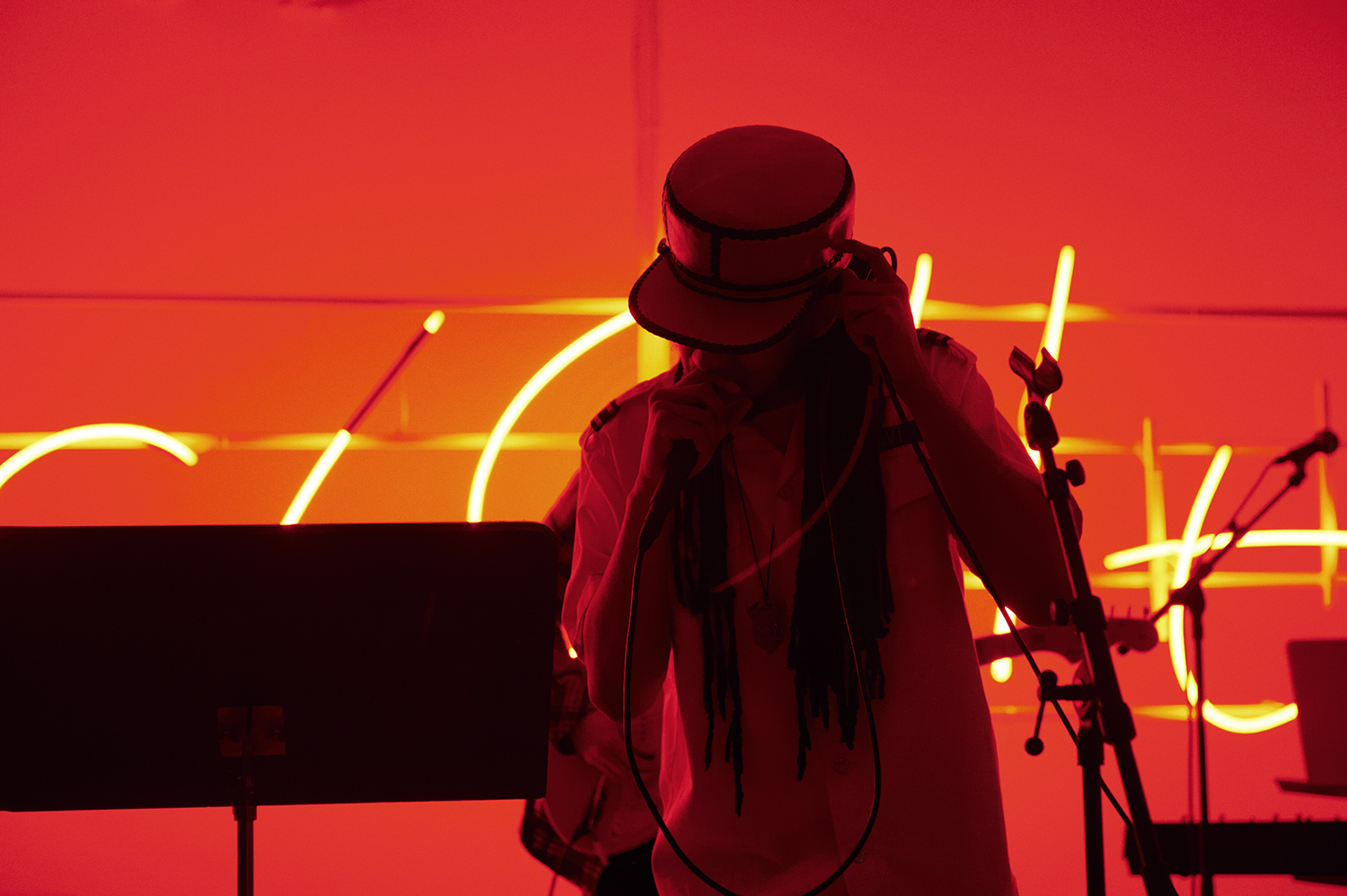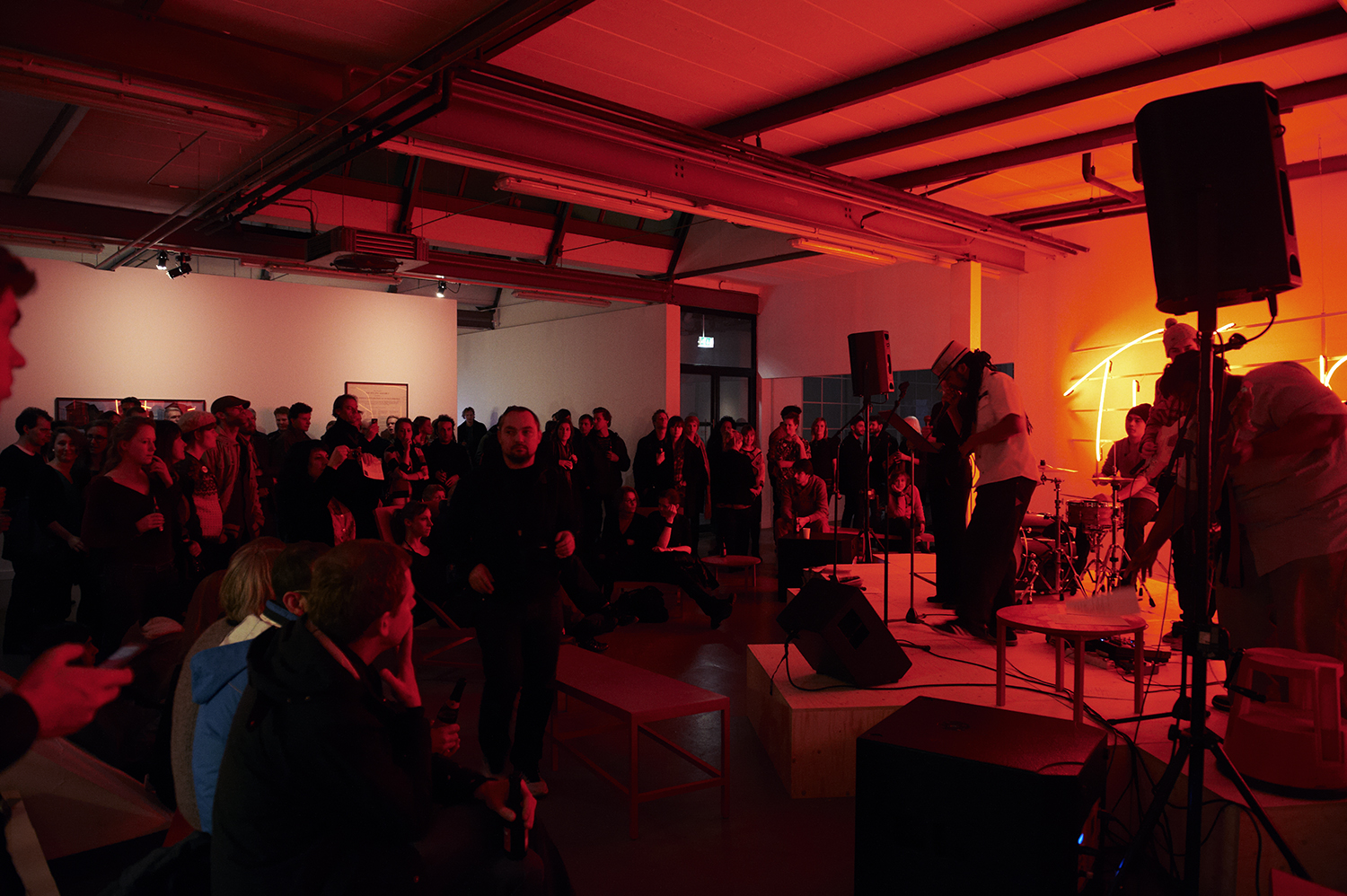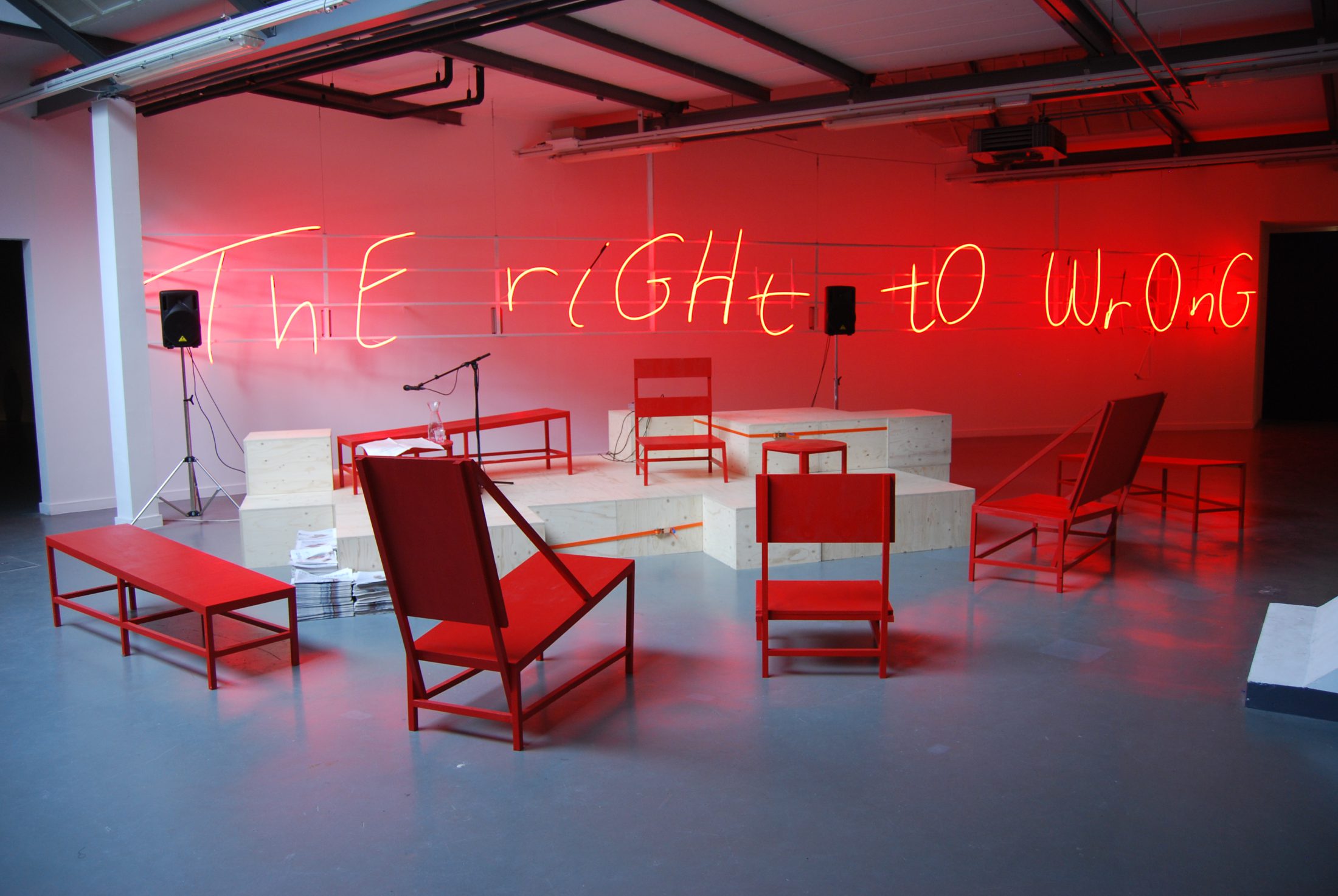ThE riGHt tO RighT/WrOnG
ThE riGHt tO RighT/WrOnG is an ongoing project and campaign where the artists assert that this fundamental Right to Right is the first step towards a real and communal sociopolitical emancipation: above and beyond the multitude of international conventions, declarations, protocols and constitutions that specify and regulate the rights that nation-states and transnational agencies have made available to, or withhold from, citizens and people.
ThE riGHt tO RighT/WrOnG was launched for the first time at 7th the Liverpool Biennial in 2012 and has been since traveling to different cities and shows as a monumental flashing neon sign, as a cut out wooden text advertisement, and has been introducing new chapters and productions such as newspapers, radio talk and other interventions in the public space and media. e work takes different forms in the outdoor public space and at different cultural and media platforms; intervenes and initiates discussions, events, actions and collaborates with different groups, organisations and professionals.
For the 7th Liverpool Biennial (2012), The Unexpected Guest exhibition, Libia Castro & Ólafur Ólafsson have launched the new project and campaign ThE riGHt tO RighT/Wrong, with two iterations: A flashing monumental neon sign that illuminates the City from the south facade of St George’s Hall, a symbolic landmark of Liverpool; and a free newspaper, distributed throughout the Biennial venues, in city libraries, cafes, bookshops, as an insert in the Liverpool Post and online.
The neon sign reads alternately ThE riGHt tO RighT and ThE riGHt tO WrOnG, and also introduces a new unspeakable word that blends RighT and WrOnG together.
It is installed at St George’s Hall, a 19th century neoclassical building in the center of the city, which used to be a functioning court room with it’s adjacent prison cells till 1980 and a still functioning as a ball and concert hall. The building holds a very important representative and symbolic role for offcial events and rituals of the community and the city till today.
The newspaper features a newly commissioned text from British writer and philosopher Nina Power on ThE riGHt tO RighT/WrOnG, written in dialogue with the artists. This text addresses the subject of ThE riGHt tO RighT and current global political unrest in a rejective and satirical manner, also confronting us with the paradoxes of a document such as The Universal Declaration of Human Rights by presenting us with ‘The Partial Declaration of Human Wrongs’ inserted in between the article.
Through this campaign, the artists assert that this fundamental right to right is the first step towards a real and communal sociopolitical emancipation: above and beyond the multitude of international conventions, declarations, protocols and constitutions that specify and regulate the rights that nation-states and transnational agencies have made available to, or withhold from, citizens.
